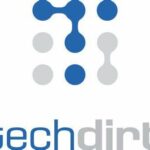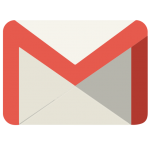Reading Time: 2 min I know a lot of people through my personal life and a lot of people through my work life, but there’s an important third group — people that are in both. In the book “Friend of Friend“, author David Burkus calls this “multiplexity”. He explains: “While we may want to categorize people into just work […]
Technology
What keyboard do you use on your phone?
Reading Time: < 1 min When asked “what keyboard do you use on your phone?”, I’m guessing the answer that most people give is “the one it came with”, but you may be surprised to learn that there are ton of different keyboards that you can use on your phone/tablet. I’ve talked about great desktop keyboards before, as well as […]
Niagara Launcher for Android
Reading Time: 2 min One of the popular features on Android phones over the years is the ability to change to a different launcher. The “launcher” is essentially the software that controls your home screen and app layout — the main grid of icons that you swipe through. Years ago I used to experiment with different launchers quite a […]
Consolidating my messages with Beeper
Reading Time: 2 min I’d heard about the Beeper app a while ago, but didn’t actually check it out until recently. I should have looked earlier, as it’s fantastic. Very simply, it’s an app that puts almost all of your messaging apps in one place, in one stream of content. This includes WhatsApp, Facebook Messenger, Twitter, LinkedIn, Signal, Instagram, […]
A Brave new browser
Reading Time: < 1 min As I’m slowly shedding the Google services in my life, I recently made a fairly big move and switched from Google Chrome to the Brave browser. If you’re wanting something more privacy-focused, Brave is likely the best way to go because it’s very similar to Chrome. There are other great browsers, including Arc and Firefox […]
There’s still a world outside these walls
Reading Time: 3 min For those of you over 40, you can likely still remember the “good old days” on the internet, back when people set up their own places to visit, rather than relying on a handful of huge companies trying to lock your attention inside of their walls (which is very likely how you found this post). […]
The internet isn’t getting worse either
Reading Time: 2 min Over the past few years I’ve shared thoughts on how the world is much better than people think. Murder rates are down, reports of missing children are down, school shootings are down, the economy is doing great, etc. Things are far from perfect, and we always need to be working to make things even better, […]
Really owning your email
Reading Time: 3 min In all of my talk over the years about owning your website with WordPress and owning your notes with Obsidian, I’m well-aware that I had a big hole in that philosophy when it came to my email. It was all in Gmail, where I have zero actual ownership of my account. The problem is that […]
Stay focused or stay available?
Reading Time: 2 min I’ve noticed that when I meet someone for coffee or lunch, they behave in one of two ways: I also see some of this from the other side: It’s a matter of deciding what’s important. I certainly hate to not respond to people while I’m in the middle of a meeting, but it’s almost always […]
Gmail turns 20
Reading Time: 2 min I mentioned a few days ago that I’m not super happy with Google lately, but a few days before that I shared how I just can’t shake Gmail. The math says I shouldn’t use it, but that’s much easier said than done. It was exactly 20 years ago today, April 1, 2004, that Google introduced […]









